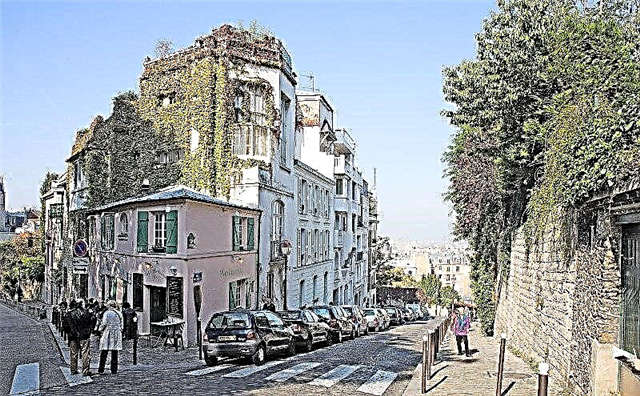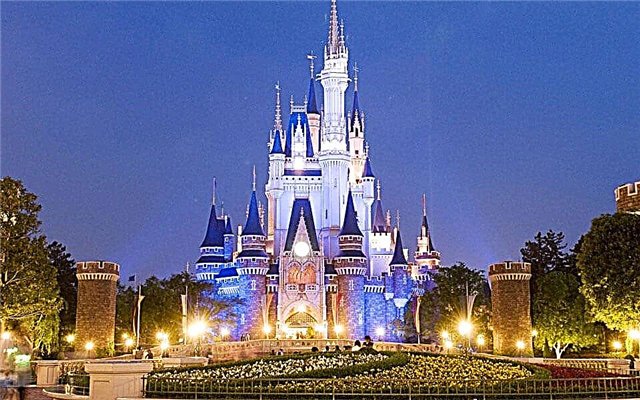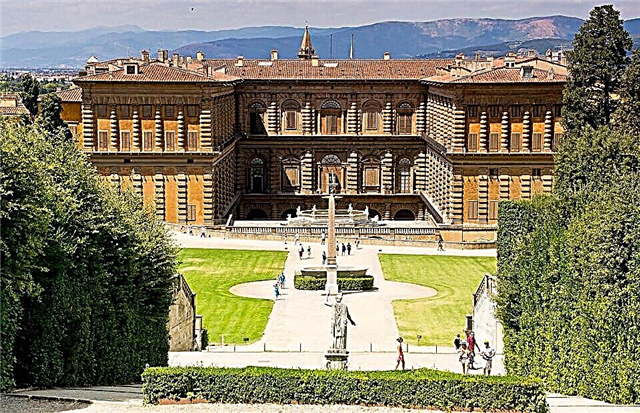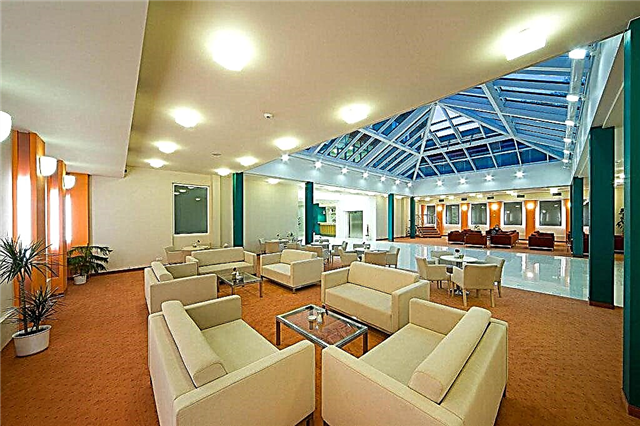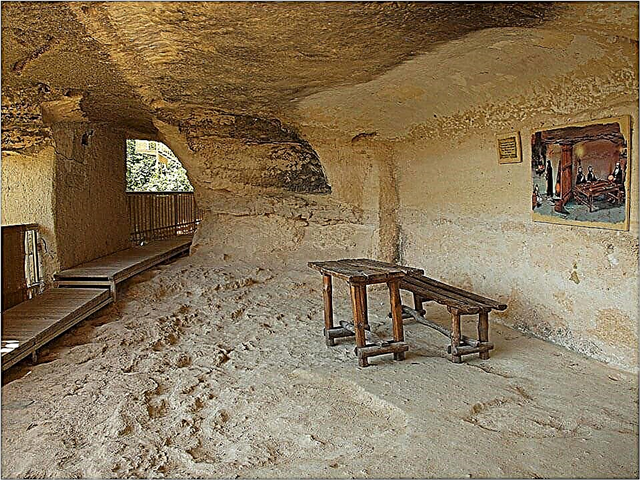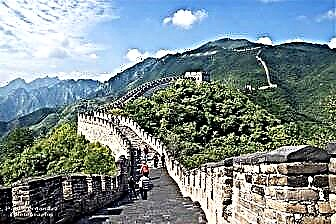China hides more secrets and beauty than meets the eye. This is not only a country of high technologies and developed megacities, but also an amazing embodiment of traditions, culture, love for nature.
In Shanghai, you should definitely take a walk along the Bund, visit the Forbidden City, climb the observation deck in Pudong New District. In Hong Kong, you must see Victoria Harbor and admire the light show.
The Great Wall of China cannot be ignored. In addition to her, the country has amazing palaces, monasteries and temples. The Hanging Monastery of Xuankong-si rests on a rock, the Summer Imperial Palace and the Potala Palace embody the greatness of Chinese architecture. There are magical gardens in China where time stands still. Also the greatest monuments of Chinese religion are the Yungang Cave Caves and Longmen Cave Temples. The terracotta army of Emperor Qin Shi Huang is impressive.
A fantastic place - Zhangjiajie National Park, takes you to another reality. Rice terraces embody the ability of a person to use the gifts of nature. An equally beautiful place is the Reed Flute Cave. And be sure to look at pandas in China. They are special here.

The best hotels and hotels at affordable prices.
from 500 rubles / day
What to see in China?
The most interesting and beautiful places, photos and a short description.
The great Wall of China
This fortress began to be built in the 220s BC. to protect against nomadic tribes by order of Emperor Qin Shi Huang. Then China achieved incredible power and flourished. The length of the wall from edge to edge is 2,450 km, and if we take into account all the bends and branches, the figure will increase to 8,852 km. About a million people took part in the creation of the most grandiose fortress. Tens of thousands died and were walled up in the walls.

Shilin National Park
The area of the park is 350 km². It was formed 200 million years ago at the bottom of an ancient sea that has become shallow. The park is called a stone forest because of the rocks, the height of which reaches 40 meters. Shilin was divided into 7 zones, on the territory of which there is a stone garden, grottoes, meadows, caves, lakes and waterfalls. The torch festival is held here annually.

Forbidden City
The Forbidden City is located in the center of Beijing. According to the astronomers who determined the site for the building, it stands in the center of the globe. This is the largest palace complex in the world. The area of the city is 720 thousand square meters. After its creation in 1406-1420, 24 emperors of the Ming and Qing dynasties ruled there. Nobody could get there, those who were too curious were punished with the death penalty. The Forbidden City is now open to tourists.

Li River (Lijiang)
This is one of the cleanest rivers in China. The length of the "silk ribbon" is 426 km. It stretches over hills and cliffs shrouded in haze. River landscapes have inspired many poets and artists. On its shores the largest and most beautiful deposits of karst rocks. While traveling along the river, tourists see the Buffalo Gorge, Crow Cave, Xingping town, picturesque mountains "Nine Horseshoes" and "Yellow Canvas".

Potala Palace
This is a beautiful royal palace and a famous center of Buddhism. It is located in Lhasa. The first building here was built by the king of Tibet Songtsen Gampo in 637 on the place where he meditated. Then he decided to make the city his capital and get married, so he built a huge palace. It has hardly survived. The modern complex was built by the Dalai Lama. It is located on a hill 3700 meters high, surrounded by a valley.

Bund Bund
The image of the Bund is one of the most recognizable in Shanghai. This is part of Sun Yat-sen Street. Along the embankment, there are 52 architectural buildings built in different styles. Films were filmed on its territory; this is the most popular tourist site in the city. The building of HSBC, Shanghai Customs, and the Peace Hotel is located here.

Pudong New District
It is a large area in Shanghai that began to develop in the 1980s. Its area is 522.8 km², population is 1.5 million. Pudong has become the business and financial center of China. There are many very recognizable structures on its territory. Among them is the Jinmao skyscraper, its height is 420 meters. One of the tallest hotels in the world was also built there. It is called the "Grand Hight Shanghai" and has an observation deck.

Tiger Leaping Gorge
I call the Tiger Leaping Gorge a canyon in the Sino-Tibetan Mountains on the Yangtze River. It stretches for 15 km, in a place where the mountains reach a height of 2000 meters. This attracts rafting enthusiasts. The gorge got its name because of the legend and the tiger that jumped over the river. The area is home to the Naxi people who grow crops and provide services to tourists. The landscapes in these places are magnificent.

Honghe Hani Rice Terraces
This man-made agricultural miracle occupies 16.5 thousand hectares in the southern part of Yunnan province. The mountains, on the slopes of which terraces were created, are called Ailo, and the river is called Huanghe. Rice terraces are a self-cleaning system. The soil on which rice grows is not washed out by water. Created terraces, which are already 1300 years old, the Hani people. They look especially magical in spring when they are flooded with water.

Victoria Harbor in Hong Kong
It is a natural harbor between Hong Kong Island and Kowloon. It has become an important strategic site, a center of trade. Victoria Harbor is a popular tourist destination. It hosts annual fireworks displays, as well as a Guinness World Record light and sound show. It is created by lasers, spotlights, flashes and lights. You can look at it completely free of charge.

Lake Xihu
It is a freshwater lake in Hangzhou. It is considered one of the most beautiful places in China. Dams and small islands divide it into 5 parts. On three sides the lake was surrounded by emerald mountains. There are many lotus flowers, irises, bridges, gazebos on it. According to legend, Xihu appeared from a fallen pearl. It is famous for its "ten types". All parts of the lake are included in the UNESCO heritage list.

Summer imperial palace
It is the summer residence of the Qing Dynasty emperors. It was built on the outskirts of Beijing. There are more than 3000 buildings in the entire park. Its total area is 290 hectares. On the territory of the residence there are temples, palaces, living quarters and an artificial lake. It can be divided into two parts: palace and park. The mountains are a beautiful backdrop for the residence. Every landscape here is inspiring.

Emperor Qin Shi Huang's Terracotta Army
At the age of 13, Qin Shi Huang began to build a tomb. After the persuasion of the advisers, the ruler abandoned the tradition of burying a living army with him and decided to replace it with a clay one. In March 1974, peasants discovered a tomb with thousands of statues of soldiers. All figures have different faces, detailed clothing. It took 38 years and more than one life to create the tomb. Living concubines and treasures were buried with the ruler.

Lijiang Old Town
Lijiang is an urban district in Yunnan province. The old town is located within its boundaries, which attracts tourists. There is the Black Dragon Pool, the beautiful Jade Dragon Mountain, Elephant Hill. Old streets, houses, shops are lined up around it. The old town is buried in flowers. Here every corner is steeped in history, and wherever you look, there is beautiful nature.

HPP Three Gorges
The construction of a dam on the Yangtze River began in 1992. Now it is the largest and one of the most powerful hydroelectric power plants in the world. For its creation, 1.3 million people had to be resettled. To generate power, 32 generators of 700 MW each and two of 50 MW each are installed on the dam. The length of the hydroelectric power station is 2309 m, height is 185 m. The dam paid off a third of its cost in the very first year of operation. It also cleans the Yangtze water from impurities.

Suzhou Gardens
Suzhou Gardens is a masterpiece in its genre. They include several picturesque and quiet gardens located in the city of Suzhou in eastern China. Wealthy Chinese created them. The oldest gardens were created in the XIV century.Each garden is designed in Chinese style. There are artificial stone slides, lakes, graceful bridges, gazebos, temples. In the gardens there is a lotus pond, an exhibition of dwarf trees, galleries.

Huangshan mountains
Located in the Anhui province of eastern China, the Huangshan Mountains are a UNESCO heritage site and are one of the most popular tourist destinations in China. The height of 77 peaks exceeds 1000 m. The rocks are covered with pine trees. In the area of the Yellow Mountains, as they are also called, there are 16 thermal springs, 24 streams, 2 lakes and 3 waterfalls. There are hotels for tourists on the tops of the mountains, and for the ascent there is a cable car and paths.

Leshan Buddha statue
The statue is carved into the cliff of Lingyunshan Mountain on the banks of the river. The height of the Buddha is 71 m. It is one of the oldest and tallest statues in the world. For 1000 years she was the leader among the giant statues. The Buddha's head is turned towards the sacred Mount Emeishan. The creation of the statue lasted 90 years, and began in 713. Tourists love to climb on the giant's fingers, which are 1.6 m long.

Zhuzhuang
Chinese Venice, as the city is called, is located 30 km from Suzhou. The old town stands on the Jinghang Canal. It is built up with white houses and villas for the intelligentsia who liked to live in Zhouzhuang. 14 stone bridges were built across the water canals. One of the main buildings is the home of the then millionaire. It has 100 rooms and an area of 2 km². A very romantic and picturesque Chinese town.

Longmen cave temples
These are Buddhist temples located in Henan province. The caves were created in 495-898 in limestone rocks on the banks of the Ihe River. The exact number of temples is not known. There are at least 2345 grottoes with 43 temples. More than 100,000 statues were carved into them. During the reign of the Sui dynasty, many of them were beheaded. Longmen cave temples are one of the most striking examples of Buddhist art.

Jiuzhaigou national park
The place of fabulous multi-colored lakes and multi-level waterfalls is the Jiuzhaigou National Park. It is located in the Sichuan province in the north of China. The park is located in a valley with nine villages inhabited by Tibetans and Qiang people. Jiuzhaigou consists of three valleys. In them you can see deciduous forests with amazing fauna, rivers, waterfalls and lakes of incredible beauty.

Yungang cave grottoes
It is a complex of 252 man-made caves. They are located 16 km from the city of Datong. They created 51 thousand images of Buddha. The tallest are 17 meters high. All grottoes stretch for one kilometer. In addition to statues, they contain Buddhist scenes, ornaments, sculptures of the Apsars. This is one of the largest cave complexes in the world.

Xuankong-si Hanging Monastery
Shanxi Province has a rich architecture, history and culture. This is one of the first regions of the country where Buddhism began to flourish. The monastery was built in 419. It unites three religions and is very popular with tourists. 40 halls and pavilions of the monastery stand on wooden piles. The rock serves as an inner wall; Buddha statues have been carved into it. There are 80 of them in the monastery.

Yangtze River Cruises
The longest river in China flows through many of the country's beautiful places. During cruises, there is a chance to swim through canyons and gorges, board boats and swim to the rocks, visit excursions in different places. It can be monuments of nature and architecture, ancient temples and cities. The views are very scenic throughout the cruise.

Longji Rice Terraces
These are some of the most beautiful rice terraces in China. They are located near the pretty village of Pignan. They are also called the Dragon's Ridge. They were built on the side of a mountain. Its height is 1100 meters. In winter, the terraces look snow-white due to snow, in spring they are flooded with water, in summer they have a bright green color, and in autumn they look golden. There are hotels for tourists.

Mogao caves
Mogao is a grandiose monument of Chinese culture. It is located in the Gansu province. The cave complex unites 492 sanctuaries. They are decorated with frescoes and sculptures. Mogao is one of the oldest Buddhist temples in China. It was built in the mountains of the Gobi Desert in the 4th century. It took a millennium to create decorations and decorate the caves. The area of fresco painting is 42 thousand km².

Mount Taishan
It is one of the five sacred mountains of Taoism. It is located in Shandong province. The height of the mountain is 1545 m. You can climb to the top of the mountain using the lift. There is a temple on it, where pilgrims constantly arrive. 80% of the mountain is covered with coniferous and deciduous forests. There are 1000 species of plants growing there, many of them are medicinal.

Wudangshan monasteries
Wudangshan is a mountain range in Hubei province. It consists of 72 peaks, 36 rocks and 24 valleys. This is the second most popular monastic complex in China. It is said that it was in this ancient cradle of Taoism that martial arts were born. There was an ancient Taoist university there. The most popular among tourists are the Golden Pavilion, the Forbidden City, the Purple Cloud Palace.

Chengdu Giant Panda Research Nursery
Sichuan Province is densely populated by pandas. In the nursery created to look after pandas, the conditions are reminiscent of their natural habitat. Little pandas are kept in them, and when they become ready for an independent life, I release them. In the nursery, animals are fed and provided with medical care. After a hearty breakfast, pandas become very lazy and slow. This is the best time to observe.

Sky Temple
The only round temple in Beijing is part of the Temple of Heaven monastery complex. It was built in 1420. It is a place of worship for emperors and prayers for a good harvest. One of the most sacred places in Beijing. The temple consists of the Altar of Heaven, the Hall of Prayer, the Imperial Vault, and the Hall of Abstinence. The territory of the whole complex is 267 hectares. The park near the temple was endowed with great beauty.

Zhangjiajie National Park
The park is located in the Zhangjiajie Mountains. This is the place where the fantastic landscapes of the movie "Avatar" were born. The park was opened in 1982, its area is 13 thousand km². The height of the quartzite rocks reaches 800 meters. They are covered with trees, and some of the mountain peaks rise up to 3000 meters. A cable car is laid among the mystical rocks. A breathtaking view opens from it. You can climb the mountains along the paths.

City wall in Xi'an
It is the only surviving city wall in China. Its height is 12 meters, width 15. Its length is almost 12 km. In the past, the wall protected the city from attacks, and after reconstruction it became a tourist attraction. A park was created near it, a marathon is being held on its territory. An excellent view of Sian opens from the wall. It is illuminated at night, and it looks mesmerizing.

Reed Flute Cave
In the city of Guilin, there is the Guangmingshan mountain, overgrown with reeds. It contains a fabulous rock called the Reed Flute Cave. It was created by the ocean, leaving behind an amazingly shaped crevice. It is the largest karst cave in China. Its length is 500 meters. Stalactites, stalagmites, an underground lake are illuminated by a multi-colored garland. Inside the cave there is a park with benches where you can relax.

Three pagodas of Chongsheng temple
The Three Pagodas of Chongsheng Temple are one of the oldest and best preserved structures in southern China. They are located 1 kilometer from the city of Dali on the shore of Lake Erhai. The architecture of the pagodas is unique for Buddhist structures. They were built of bricks, coated with white clay and decorated with patterns. The roofs of the pagodas are made of copper. The three pagodas of Chongsheng Temple are called the most beautiful symbol of Dali.

Tombs of the emperors of the Ming and Qing dynasty
These are several mausoleum complexes throughout China. The emperors of the Ming and Qing dynasties, who ruled the country for over 500 years, are buried in them. All tombs are made according to the principles of Feng Shui and testify to the beliefs and religions of the Chinese at that time. The tombs of the emperors are included in the UNESCO World Heritage List.



